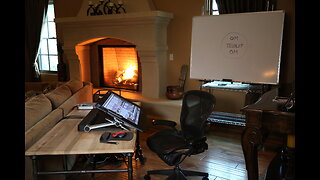Who really controls the Panama Canal | Wizzark World
The Panama Canal is one of the world's most impressive engineering feats, connecting the Atlantic and Pacific Oceans and revolutionizing global trade. But the canal's complex history and ownership have long been a topic of debate. In this video, we'll explore the fascinating story behind the Panama Canal, from its construction and impact on Panama's economy to the ongoing expansion and modernization efforts. Join us as we unravel the secrets of this critical waterway and its role in shaping the modern world.
In this video, we'll explore the complex history of the Panama Canal, from its construction by the French in the late 19th century to its eventual ownership by Panama in 1999. We'll examine the impact the canal has had on Panama's economy, turning the country from a predominately rural agricultural nation into a thriving commercial powerhouse. We'll also delve into the significance of the canal in global trade and commerce, increasing efficiency and lowering costs of transporting goods and raw materials between the two coasts of the Americas.
Furthermore, we'll discuss the ongoing expansion and modernization of the Panama Canal, including the doubling of its capacity through the construction of larger locks, allowing larger ships to pass through and boosting its effectiveness in international trade. We'll explore the challenges faced during the canal's transition to complete Panamanian control, marked by treaties, negotiations, and legal battles between Panama and the United States.
Finally, we'll address the debate surrounding the Panama Canal's potential significance in world trade and business, expected to play an increasingly crucial role as a critical commerce route between Asia and the Americas and between the two coastlines of the Americas. With its strategic location, modern infrastructure, neutrality, and accessibility to ships from all nations, the Panama Canal is positioned to continue playing a vital role in the development of the world economy for many years to come.
-
 LIVE
LIVE
Lofi Girl
1 year agoSynthwave Radio 🌌 - beats to chill/game to
810 watching -
 21:00
21:00
Mr. Build It
23 days ago3 Ways to Build Garden Beds
14.1K14 -
 1:42:14
1:42:14
Jewels Jones Live
1 day agoDETRANS w/ special guest Mary Margaret Olohan | A Political Rendezvous - Ep. 78
21.5K16 -
 1:36:46
1:36:46
Roseanne Barr
1 day ago $73.82 earnedFor Love of Country with Tulsi Gabbard | The Roseanne Barr Podcast #50
138K388 -
![[D2] Rumble Featured!! Lets Go!!! #RumbleTakeOver](https://hugh.cdn.rumble.cloud/s/fw/s8/1/5/g/l/6/5gl6r.0kob-small-D2-Onslaught-Grind-w-Some-P.jpg) 6:28:15
6:28:15
CHiLi XDD
9 hours ago[D2] Rumble Featured!! Lets Go!!! #RumbleTakeOver
34.6K7 -
 2:45
2:45
Chicks in the Office
8 hours agoHolly Madison Talks Reconciliation with Kendra Wilkinson
48.5K33 -
 LIVE
LIVE
Di bear
10 hours agoFinal Season Mission, Pantheon | Destiny 2
325 watching -
 6:54:43
6:54:43
SquallRush
12 hours agoAthenian Rhapsody!
49.4K7 -
 1:47:01
1:47:01
Real Coffee With Scott Adams
10 hours agoEpisode 2492 CWSA 06/01/24
60.2K57 -
 2:08:10
2:08:10
LFA TV
11 hours agoEP 47: Miles Guo Trial Special with Special Guests - Truth, Betrayal, and Fox Hunt | WHISTLE BLOWERS 6.01.24 12pm EST
52.4K15